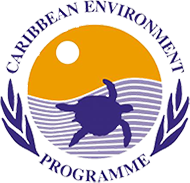The session, set to begin Wednesday 13th of March 2019, will explore work on marine litter and microplastics across the world through the 18 Regional Seas Programmes. An overview of current work will be presented along with an assessment of different region’s action plans on marine litter. Audience will have the chance to interact with representatives from different Regional Seas Programmes. Representatives will provide in-depth information regarding their region’s work on marine litter, touching upon achievements to date, challenges faced as well as current and potential future collaborations.
Dr. Lorna Inniss, Coordinator of the Caribbean Environment Programme, will be presenting at this event on the various achievements and challenges of the Cartagena Convention when addressing marine pollution.
Marine pollution and coastal degradation are major development challenges in the Wider Caribbean Region. Coastal and marine ecosystems are being negatively impacted by land and marine-based pollution including from solid waste and marine litter. This threatens livelihoods especially through economic losses to the tourism, shipping and fishing sectors. The impact of marine pollution also poses risks to human health, and the beauty of the Caribbean islands and coastal communities.
For the last 30 years, the Secretariat for the Cartagena Convention, in Kingston, Jamaica, has supported regional Governments to control, reduce and prevent marine pollution.
The Land-Based Sources of Marine Pollution (LBS) Protocol (signed in 1999 and adopted in 2010) and the Regional Action Plan for Marine Litter Management (developed in 2008 and updated in 2010) are regional frameworks for our marine litter projects and activities.
After the launch of the Global “Clean Seas Campaign” in 2017, the Secretariat actively promoted participation in the campaign and out of our 28 Contracting Parties to the Convention, 10 Countries have signed onto the Campaign of which 7 are also Contracting Parties to the LBS Protocol. Efforts are ongoing to mobilize resources to have a region wide campaign building on the experiences at the global level.






